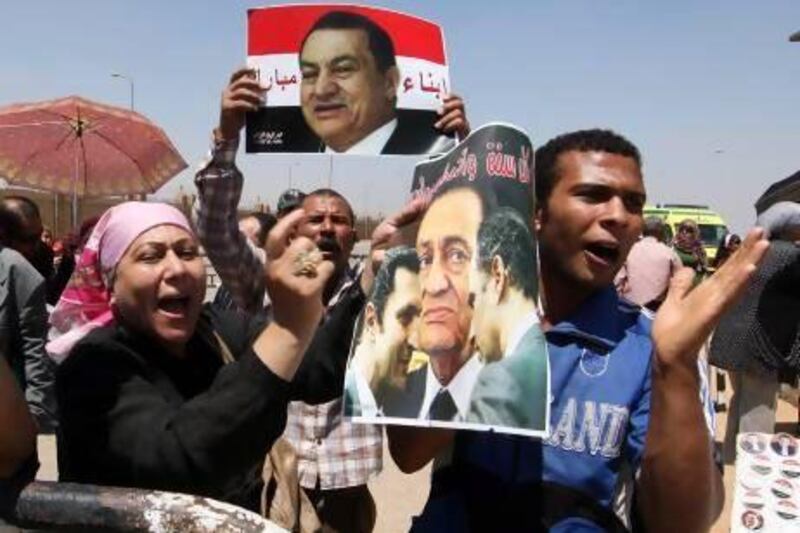CAIRO // A Cairo criminal court ruled yesterday that Gamal and Alaa Mubarak, sons of the former president, should be released from custody because they had already served the maximum detention period established by the Egyptian penal code.
Mubarak's sons will remain in custody because of separate corruption cases that are being heard by the courts, but the ruling raised the possibility that they could be freed, at least temporarily, by the end of the year.
Together with their father, Hosni Mubarak, they are accused of accepting villas at a discounted price from an Egyptian businessman in exchange for political favours.
The former president and several former security officials are also being tried for their alleged role in the killing of protesters during the 2011 uprising that led to Mubarak's resignation. More than 850 people died in clashes with police during the protests.
Mubarak and his former minister of interior, Habib El Adly, were sentenced last year to life in prison for failing to use their powers to stop the killing of protesters during the uprising, but an appeals court overturned the conviction in January because of procedural errors. Both men have said they were innocent and denied authorising the use of lethal force against protesters.
Judge Mahmoud Al Rashidi, the head of a three-member panel of judges hearing a combined trial over the protesters deaths and the discounted villas, yesterday adjourned proceedings until July 6 after prosecutors submitted several cartons of videos and documents to be admitted as evidence. In closing the session, he agreed to give the defence more time to review the material and pledged to "dig for the truth".
His ruling to release Gamal and Alaa stemmed from the Egyptian penal code, which states that a suspect of a crime can be held for a maximum of 18 months in a case that involves felony charges or for two years if the charge could lead to a sentence of life imprisonment.
The main case that Gamal and Alaa are being held on has to do with insider trading related to the purchase and sale of Al Watany Bank in 2007.
They were charged in that case in May last year, which means they would have served their maximum detention by December of this year.
The public prosecution is investigating other allegations of corruption. If new cases are filed, the Mubarak family could see their detentions extended again.
The prospect of Gamal and Alaa being released from prison is likely to renew major protests in Egypt. There is already a growing perception that the courts have failed to bring justice to the families of the victims who died during the protests in 2011. The government has also been unable to recover assets allegedly gained through corruption and cronyism from members of the Mubarak regime and businessmen associated with the old government.
During two previous hearings, lawyers for the families broke into chants of "the people demand the cleansing of the judiciary".
bhope@thenational.ae





